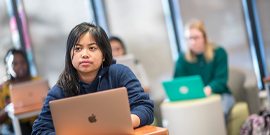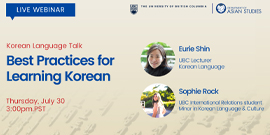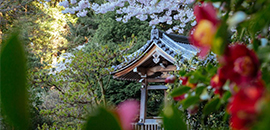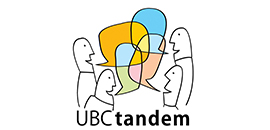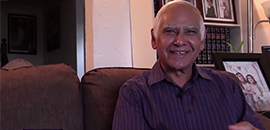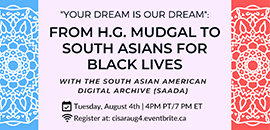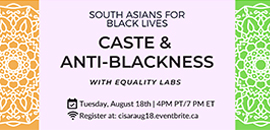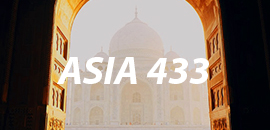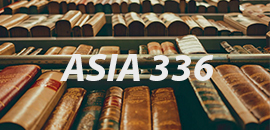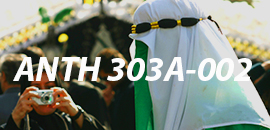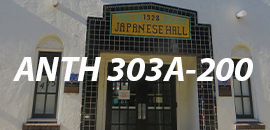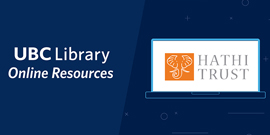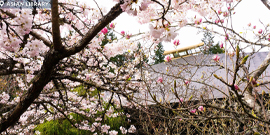
July 28, 2020 The Update is a regular roundup of news in the Department of Asian Studies for our Students, Faculty and Staff |
|
||||||||||||
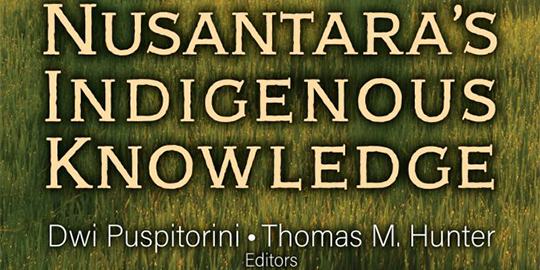 |
||||||||||||
|
Dr Tom Hunter co-edits 2020 publication together with University of Indonesia Nusantara’s Indigenous Knowledge was a joint undertaking between Dr. Tom Hunter and Dr. Dwi Puspitorini of the University of Indonesia's Faculty of Cultural Studies (as well as professors and graduate students of the Faculty), to co-edit the June 2020 publication. As the title suggests, each introspection in the book features its own nuances in the approaches the author takes in analyzing both local tradition and artifacts in juxtaposition to contemporary societies of not only Indonesia, but South East Asia as a whole. Tom shares his experience with the project: "In May 2018 I was invited to participate in an international seminar of the Laboratory for Lexicography and Lexicology of the Faculty of Humanities at Universitas Indonesia (UI). Located in Depok, south of Jakarta, UI is among the most prestigious universities in Indonesia, and currently making a considerable effort to modernize their programs and make them more relevant to the pressing needs of contemporary society." |
||||||||||||
|
||||||||||||
|
||||||||||||
|
|
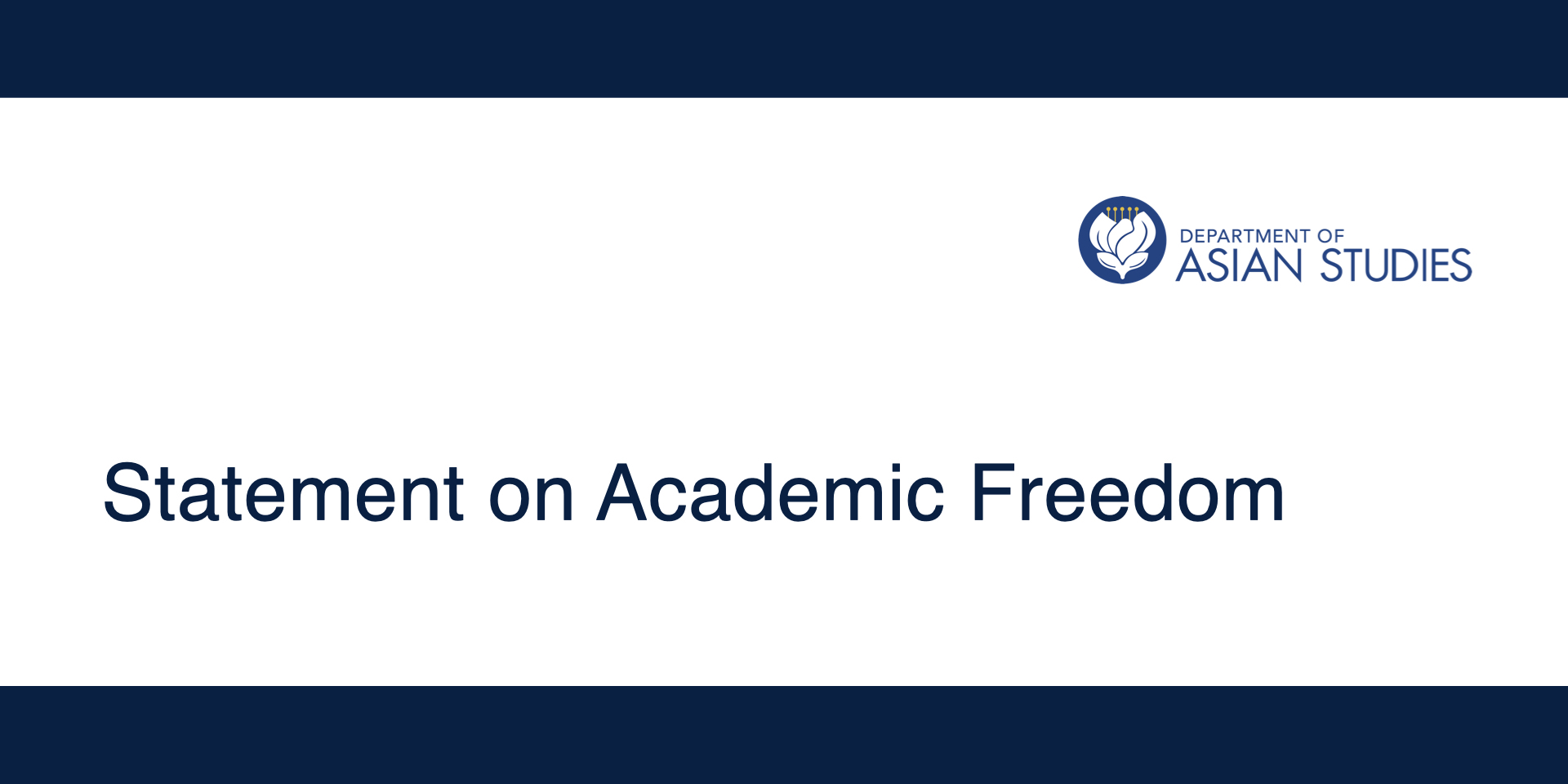 |
|
In light of the recent developments in Hong Kong, as well as the on-going challenges in addressing the past and present elsewhere in Asia, the Department of Asian Studies at the University of British Columbia is reaffirming its support of UBC’s commitment to advancing academic freedom. As part of a Canadian institution of higher learning, the Department will continue to fulfill its academic mission while upholding the values that inform the laws of Canada. |
| FEATURED COURSES | ||||||||||||
|
|
||||||||||||
|
||||||||||||
| STUDENT SPOTLIGHT: Chulthim Gurung |
|
|
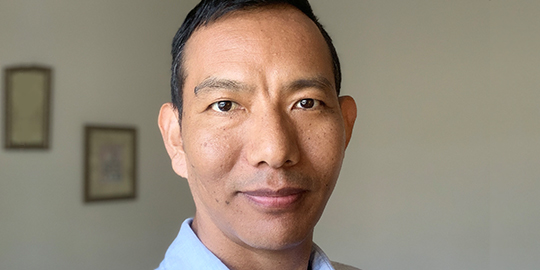 |
|
Interested in what you can do with a degree in Asian Studies? In our Alumni Spotlight Interview Series, we ask our alumni about their career paths, how they became interested in Asian Studies and for any advice they would give to current students. In this interview, Chulthim Guring has just completed his Master of Arts in Tibetan Buddhism (Asian Religion) and shares his experience below! Could you tell us a little about your life, studies and career, prior to studying an MA with UBC? Hi everyone! This is Chulthim, my friends call me Mriti. I am proud to say that I graduated from UBC. I cannot imagine that a man from the Himalaya trans-border region of Nepal, where there is no electricity, no proper roads and schools, and around 12 thousand miles away from UBC, can nonetheless make this happen. Concerning my life, it is a journey from Mustang to Montreal and monastery to McGill. And there is KIBI and UBC as a sojourn between them. I am here today in this spotlight to celebrate that successful sojourn at UBC. I was born in Mustang. It is in the northern border area of Nepal. I was raised and educated in a Tibetan Buddhist monastery in Pokhara, Nepal. I am currently registered for my PhD studies at McGill University. My research topic is Buddhist Psychology. Prior to UBC, I had most of my formal education in the monastic institutes in Nepal and India. I worked there as a teacher, administrator and social activist. I was fortunate to get a teaching job an institute called Karmapa International Buddhist Institute in New Delhi. I worked there first as an instructor for four years, then later as an administrator for four additional years. At the same time, I was also working as a secretary for a charitable organization called KIBS in New Delhi. What led you to undertake the studies with us, and to focus on Tibetan Buddhism – in addition to being Asian, have you always had a particular interest in studying that area? All my previous religious, academic and social activities in Nepal and India prompted me to pursue my masters at UBC. Because I strongly felt that contemporary higher education is necessary to work internationally in different fields. With my short research and a trusted friend’s suggestion that UBC has a good Asian Studies program, I decided to apply for it and I was glad that they accepted me. Concerning my study of Tibetan Buddhism at UBC, I already have the traditional higher Buddhist education. However, there, I miss the contemporary or larger picture of Buddhism as one of the world’s religions and approach in it accordingly. It also has a huge impact on the daily lives of people, not only for those who live in monasteries. Asian Studies at UBC filled that missing gap in my academic life. It offered me a new lens to look at religion and society with a neutral or etic perspective, and with proper methods to acquire them. Generally speaking, from my childhood I have difficulties to see others’ suffering and poverty. As a solution, as the historical Buddha Shakyamuni said, enlightening one’s mind through giving a proper education is the best way to eliminate all sort of sufferings. So, through my education, I hope one day I can enlighten others' minds. I am not talking here about the Buddhist enlightenment. I am simply hoping that one day I can provide a basic education to children in remote areas of developing countries. I believe that every child in the world should have access to a primary level of education. This is my dream. This might be an ambitious goal but why not if that is for the betterment of the world. |
| ALUMNI SPOTLIGHT: Daryl Louie |
|
|
 |
|
Interested in what you can do with a degree in Asian Studies? In our Alumni Spotlight Interview Series, we ask our alumni about their career paths, how they became interested in Asian Studies and for any advice they would give to current students. This interview features Daryl Louie (BA 2010) who found that majoring in Asian Studies and joining the Kappa Sigma fraternity gave him a strong grounding in volunteering, holding executive roles, and taking on new challenges. All of which gave him the confidence and network to create learning more about his family history, self-discovery in Asian Studies. Daryl is the co-founder and CEO of AntiSocial Media Solutions digital marketing. Tell us a little about yourself, your background and how you became interested in Asian languages and cultures? My name is Daryl Louie, I own and operate a Digital Marketing Agency www.antisocialsolutions.com, home based in Vancouver B.C. with offices in Toronto, New York, Salt Lake City, and Los Angeles. I became interested in Asian Languages and cultures through my family’s background, as well as its contributions towards Vancouver’s Asian community. What choices did you make at UBC that contributed to your career success / journey? Choosing Asian Studies as my major allowed for me to learn applicable knowledge about my own history which kept me interested throughout my student journey; you have to learn about topics you’re passionate about to get the full scholastic effect. Full transparency, the biggest contribution to my current success was joining my fraternity, Kappa Sigma. While at the fraternity I volunteered my time towards being on the executive every single year since I joined which allowed me to develop critical skill-sets in running an organization, motivating members to contribute and be dedicated to a unified goal, pursue my passion in creating content. Most importantly, I was creating a network of individuals from different backgrounds and interests which has paid off tenfold in my current day position, opening doors in a minute that would normally take months if not years to open. |
| ASIAN LIBRARY NEWS | ||||||
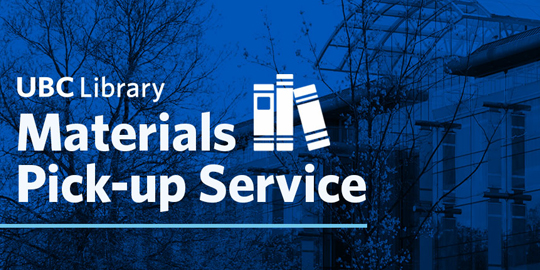 |
||||||
|
Library Material Pick-Up Service Learn about the library’s new materials pick-up service that enables students, faculty and staff to access items in the collection that are not available in electronic formats.
|
||||||
|
||||||
| OPPORTUNITIES |
 |
|
The Society of Fellows (Princeton University): Fellowship Applications Open The Society of Fellows at Princeton University, an interdisciplinary group of scholars in the humanities and social sciences, calls for fellowship applications annually. For the 2021-2024 competition, three fellowships will be awarded: Open Discipline (2) and Humanistic Studies (1). Graduate students are encouraged to apply: both those now finishing their Ph.D., and those who received their degree after January 1, 2019. Also especially welcome are candidates from underrepresented backgrounds. The application deadline is August 4, 2020; letters of recommendation may be submitted until August 11. Please find a link to the printable call for applications here, and more information here. Critical Asian Studies: Call for Submissions Critical Asian Studies, a Taylor and Francis multidisciplinary academic journal, is soliciting 500-1,500-word online blog posts to for a linguistically and culturally diverse readership. With a focus on practice more than theory, the blog is now publishing posts emphasizing empirical evidence from early career scholars about emerging scholarship and research on new and critical topics infolding across Asia on the themes of research and opinion on politics, economic realities, or another critical topic in an Asian region, or reflections on fieldwork highlighting methods employed across various disciplines for research, analysis, and data collection. Deadlines for submission are on the last Friday of each month. If you would like to submit or propose a post, respond to webeditor.criticalasianstudies@gmail.com with your interest and potential topic. Canadian Journal of Undergraduate Research (CJUR): Call for Submissions CJUR is a multidisciplinary student-led publication that aims to provide an accessible platform for undergraduates from all Universities across Canada to gain experience in academic publishing, and was founded in 2015 at the University of British Columbia. Submissions are peer-reviewed by graduate students with experience in the field of the submission. CJUR is a great way to build your CV and have something to show for all your hard work! We accept manuscripts on a rolling basis, but the sooner you submit, the sooner you will hear back from us. For information on submission guidelines, please visit the CJUR website or email cjur.uro@gmail.com. Lab2Launch is Open for Applications! Applications are now open for EntrepreneurshipUBC’s Lab2Launch venture building stream, designed for UBC scientists and researchers looking to mobilize innovation into viable startup companies that can thrive. Lab2Launch provides research-led and high-potential ventures with the industry expertise, practical business training and deep mentorship to develop discoveries into viable ventures. Apply by August 10th on their website. |
| ON & OFF-CAMPUS EVENTS |
 |
|
UBC Recreation 5-Day Self-Care Challenge July 27 - 31 UBC SPPGA Institute for Future Legislators Virtual Series Until August 13 | Online via registration #MOA From Home: Stay Connected Online Ongoing Ongoing
|
|
||||
| This email is intended for . Unsubscribe |
